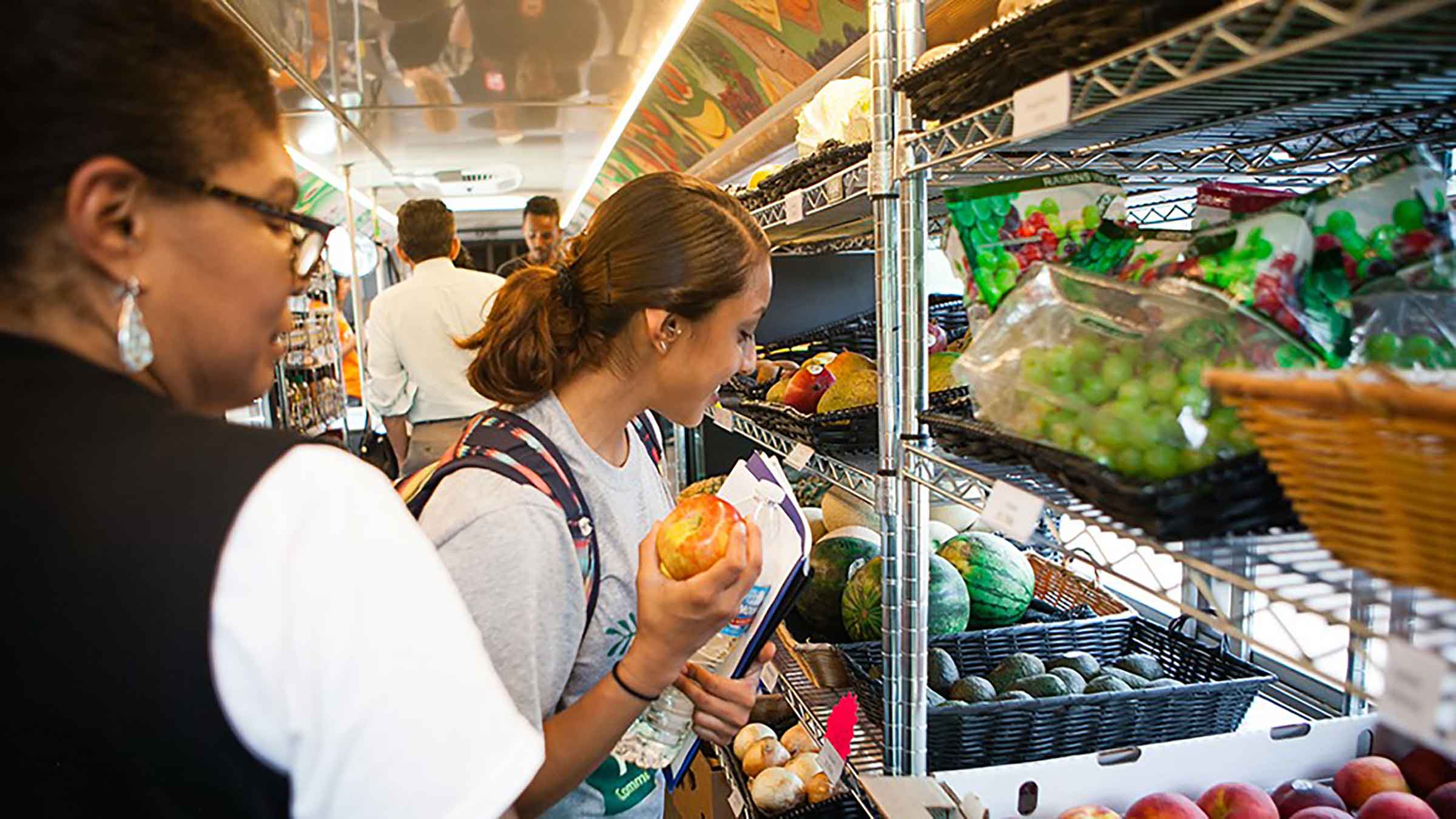
Food and food access are foundational to community health and well-being. The food we eat represents more than just a nutritious meal to help us get by. It also represents who we are, our community and culture, and for many of us, it is our livelihood and power.
Community crises compound issues of hunger and poverty. COVID-19 has disrupted our local food systems on many levels, and the murder of George Floyd exposed long-standing racism, oppression and structural inequalities. Communities rising up against racism have experienced devastating destruction and disruption to important local food economies and neighborhood assets like grocery and convenience stores, farmers markets and restaurants, which serve as critical buffers against hunger, poverty and inequality.
Our values toward equity underscore it’s not only important that every household has ongoing access to food, but also access to a just and equitable food system that supports their needs.
PolicyLink explains the food system well: “An equitable food system is one that creates a new paradigm in which all — including those most vulnerable and those living in low-income neighborhoods and Communities of Color — can fully participate, prosper and benefit. It is a system that, from farm to table, from processing to disposal, ensures economic opportunity; high-quality jobs with living wages; safe working conditions; access to healthy, affordable and culturally appropriate food; and environmental sustainability.”
We believe every community deserves to have access to healthy, affordable and culturally preferred foods. Now more than ever, given heightened needs, we must challenge how we work as well as strengthen and support long-term solutions.
Innovation has the power to support resilient and more equitable communities. Greater Twin Cities United Way creates lasting solutions by listening as well as co-creating solutions that amplify innovation and address systems-level and community-wide needs.
During our recent Community Connection Series session, speakers Adair Mosley and Dr. Samina Raja explored the Full Lives community food security model, perspectives and alternative ideas for fighting hunger and food insecurity. They also addressed the important role local food systems play to strengthen community food security and advance food justice.
In 2017, Greater Twin Cities United Way designed and launched Full Lives as a solution to addressing community-level food insecurity in North Minneapolis. Core ingredients focus on investing in long-term “upstream” equitable solutions. Deeply informed and driven by existing community efforts, the initiative supports multiple factors within a community food environment that contribute to a more vibrant and secure food system.
A total of $1.5 million was invested in community grants across a diverse grantee ecosystem of 11 unique organizations with 14 projects working at different stages of the food value chain – ranging from urban farming and gardening initiatives, farmers and mobile markets, food entrepreneurship, social enterprise development, employment and advocacy.
Speaker Dr. Samina Raja shared ideas for catalyzing food systems change and emphasized going beyond solutions that only address individual behaviors such as personal choice and accountability. She highlighted that systems level factors can influence an individual’s reality and their food environment, emphasizing that “Support to the system is as important as how much we support the individuals that are part of those systems.”
As stated by speaker Adair Mosley, food security solutions rest in community and have the greatest potential when they address the complexity of the ecosystem and are built with a collaborative and holistic approach. “[This requires] working together across silos to connect food needs with livelihoods like jobs and living wages, quality health care, wealth creation and leadership from residents.”
The session showcases United Way’s work in supporting community food systems with models like Full Lives, and encourages us to continue supporting food justice solutions that respect and honor community self-determination.
Please consider supporting community food systems and Full Lives by:
Together, we can ensure all communities have a healthy, equitable and sustainable community food system where all residents can thrive.